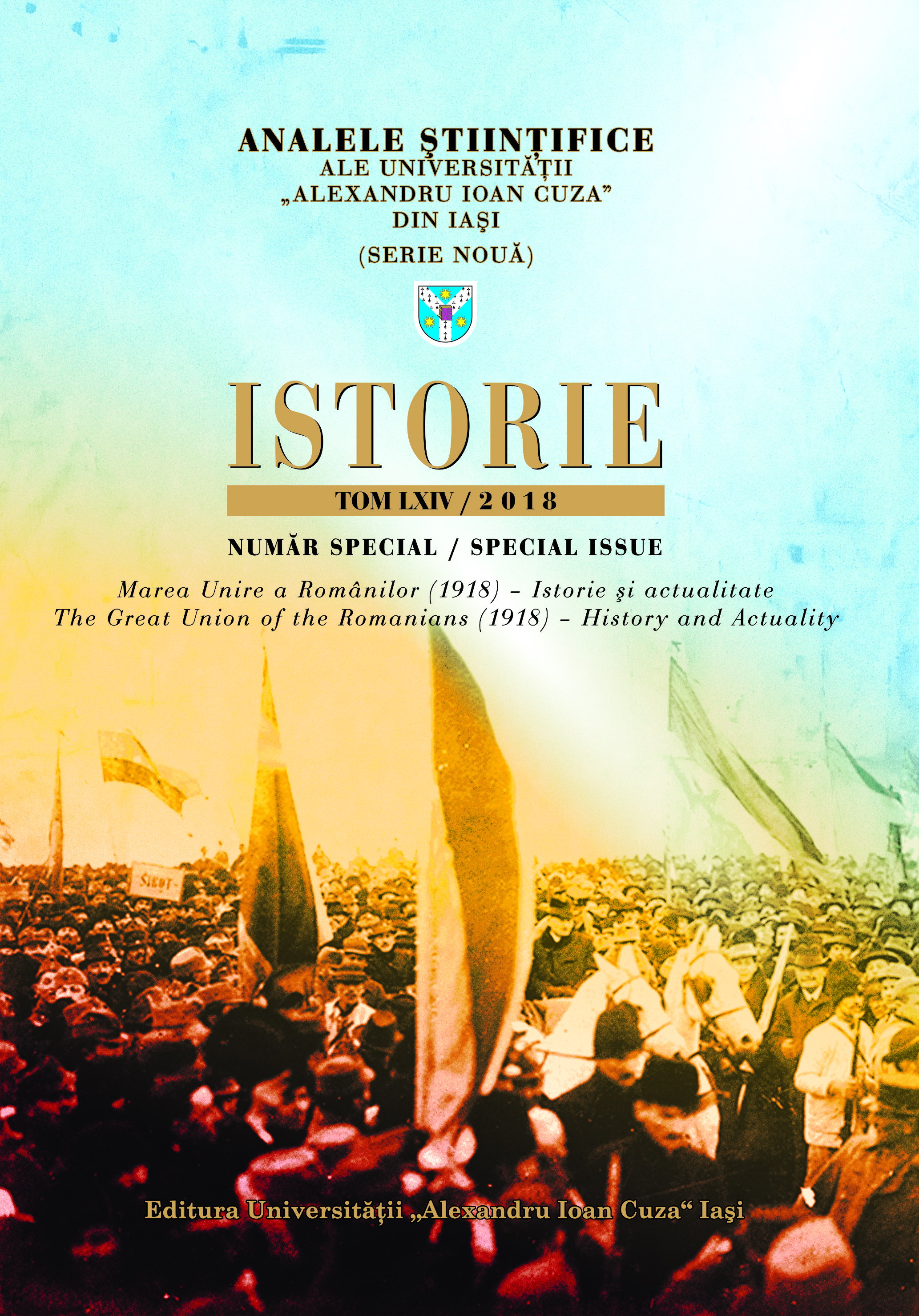Contribuţia clericilor ortodocşi la unirea Basarabiei cu România
The Contribution of the Orthodox Clergy to the Bessarabian Union with Romania
Author(s): Ionel MoldovanSubject(s): History, Pre-WW I & WW I (1900 -1919)
Published by: Editura Universităţii »Alexandru Ioan Cuza« din Iaşi
Keywords: National movement; The Orthodox Church in Bessarabia; clergy; union; Gurie Grosu; Dionisie Erhan;
Summary/Abstract: This article covers the gradual involvement of Orthodox priests in the movement of national emancipation in Bessarabia between February 1917 and February 1920. De jure, the unification of Bessarabia and Romania was achieved through the document of March 27, 1918 and through its acknowledgement in the conditions set during the Paris Peace Conference at the end of the First World War. De facto, however, the union had to be promoted and consolidated in the territory. This mission was entrusted to the intellectuals and to the Romanian state authorities. My endeavour will take into account the activity of a certain part of the intellectuality, namely the clergy. They belong to two categories: Bessarabia natives involved in the Bessarabian national emancipation movement in the context of the year 1917 and persons on a temporary posting, as well as those seeking refuge in the province. The priests with temporary assignments were military priests with precise instructions of promoting the Romanian national values among the population. The refugees came, most of them, from Transylvania, from where they had retreated along with the Romanian armies in the fall of 1916. Their passage in the province occurred especially in the context of the fights on the Romanian front in the summer of the year 1917. The activity they carried out – supported by the authorities of the Romanian state – represented a significant part of the effective unification of Bessarabia and Romania. It may be stated that it actually took place once the ecclesiastical unification occurred, and once Gurie Grosu was acknowledged as head of the Church in the province. He was one of the main voices promoting Romanian culture in Bessarabia after 1905.
Journal: Analele Ştiinţifice ale Universităţii »Alexandru Ioan Cuza« din Iaşi. Istorie
- Issue Year: 2018
- Issue No: 64
- Page Range: 249-262
- Page Count: 14
- Language: Romanian
- Content File-PDF

